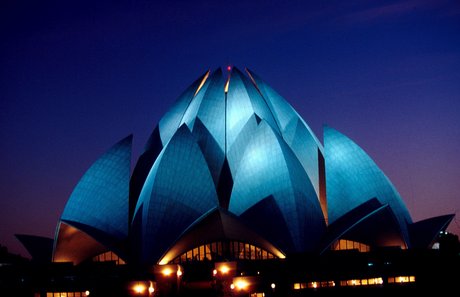An article in CBC news (Canada) highlights the alarmingly high incidence of abuse against women in Indian families. In it, such violence is characterized as "deep-rooted. Women are abused at the point of conception."
The following horrifying story and report is indicative of the gravity of the problem, and of the desperate condition of human society in general. It adds perspective to the words of Bahá'u'lláh when He observes:
Last Saturday, in the heart of India's south New Delhi, two men poured acid and gasoline on Tarveen Suri, 36, then set her on fire. They burned 80 per cent of her body. Police are investigating what they call a "strained" relationship with her husband.
Suri is just one of thousands of Indian women attacked yearly as a result of domestic violence. A UNICEF report in 2000 stated 45 per cent of married men in the Indian state of Uttar Pradesh acknowledged physically abusing their wives during marriage.
That same report states that 5,000 women are killed by their husbands and in-laws each year in "accidental" kitchen fires. Other killings take the form of acid attacks and honour killings. Yet other atrocious behaviour plaguing some Indian women includes bride burning, female infanticide, eviction of widows and murders over dowry issues. ...
Old traditions die hard
Abuse of south Asian women isn't just confined to India and Pakistan. When immigrants seek a new life in Canada, sometimes the old traditions die hard. In the past year, several B.C. women of Indo-Canadian descent have died as a result of domestic violence. They include Manjit Panghali, a young mother whose body was found burned in October by a roadside in Delta. Her husband, Mukhtiar Panghali, was charged in connection with her death. That same month, Navreet Kaur Waraich, the mother of a four-month-old boy, was stabbed to death in Surrey. Her husband, Jatinder, has been charged.Sadeqa Siddiqui, co-ordinator of Montreal's South Asian Community Women's Centre, says, "The problem is that women are considered second-class citizens. This is a male society — men are ruling."
The Hidden Words of Bahá'u'lláh poignantly address such ingrained assumptions of superiority or authority towards other human beings:
The article contiues:
Narang says many young boys grow up with violence in the home and end up repeating it with their own wives. Educating them to change their behaviour is important. Men must be told that their attitudes need to shift and that it's a human rights issue, she says. As well, Narang says women need to be taught they're not objects of abuse just because they've seen their mothers and grandmothers in that situation.
"Society needs to know that it was happening 100 years ago, but in the 21st century we are not going to take it. Abuse is abuse."
Thankfully, as the article indicates, the necessary efforts to educate the new generations in proper human attitudes, values and conduct are under way. This is in accordance with Bahá'í precepts, which underline the centrality of education and proper schooling for the civilizing of humanity. 'Abdu'l-Bahá says:
View the complete article here.
Bahá'ís everywhere are actively involved in furthering their children and youths' spiritual and moral training, offering children's and moral development classes open to the general public whenever feasible. They also work to realize full equality between the sexes.
Notes:
(1) Gleanings From the Writings of Bahá’u’lláh, XVI, p. 39
(2) The Hidden Words of Bahá’u’lláh, Arabic no. 68
(3) Selections from the Writings of ‘Abdu’l-Bahá, Sec. 111, pp. 136–37)

